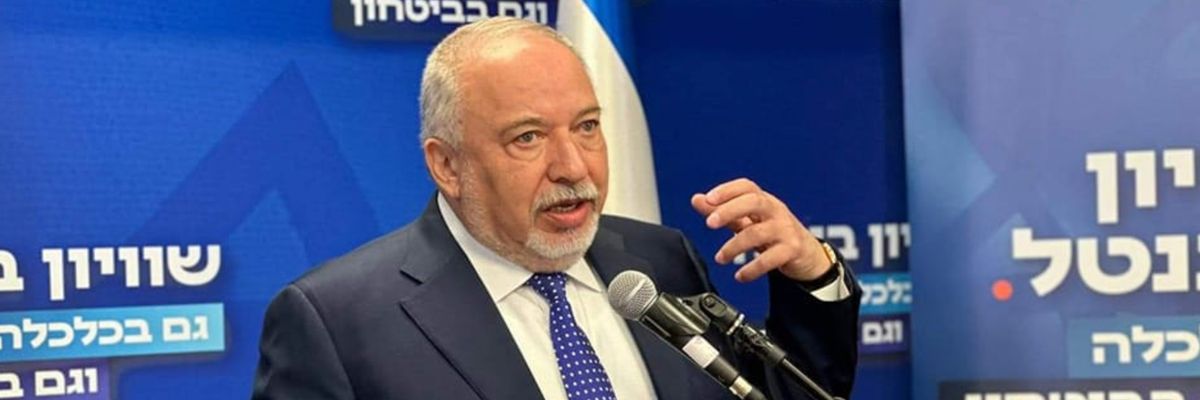A longtime Israeli lawmaker and former defense minister took to the airwaves and social media on Wednesday to suggest his country should do whatever it takes to prevent Iran from developing nuclear weapons.
"It is not possible anymore to stop the Iranian nuclear program with conventional means," Avigdor Liberman of the right-wing Yisrael Beiteinu party
said during a Channel 12 interview. "And we will have to use all the means that are available to us."
"We will have to stop with the deliberate policy of ambiguity, and it needs to be clear what is at stake here," Liberman continued, apparently referring to Israel's refusal to say whether it has nuclear weapons. "What is at stake here is the future of this nation, the future of the state of Israel, and we will not take any risks."
When pressed on what he meant by stopping Iran with non-conventional means, Liberman said, "I said it very clearly."
"Right now there is no time to stop the Iranian nuclear program, their weaponization, by using conventional means," he added.
Liberman made
similar comments on social media, where his remarks sparked alarm and condemnation. The lawmaker's hardline call comes amid powder keg tensions between Tel Aviv and Tehran, which warned last week that any Israeli invasion of Lebanon—from which Iranian ally Hezbollah is resisting Israel's annihilation of Gaza—would trigger an "obliterating war."
According to the Arms Control Association (ACA), a U.S.-based advocacy group, Iran is a "threshold state," meaning "it has developed the necessary capacities to build nuclear weapons."
However, a February 2024
threat assessment report authored by the U.S. Director of National Intelligence stated that "Iran is not currently undertaking the key nuclear weapons-development activities necessary to produce a testable nuclear device."
"Since 2020, however, Tehran has stated that it is no longer constrained by any JCPOA limits," the report says, a reference to so-called Iran Nuclear Deal from which the U.S.
unilaterally withdrew in 2018 under former President Donald Trump. "Iran has greatly expanded its nuclear program, reduced [International Atomic Energy Agency] monitoring, and undertaken activities that better position it to produce a nuclear device, if it chooses to do so."
Iran maintains its nuclear program is for peaceful purposes, although Kamal Kharazi, a foreign policy advisor to Iranian Supreme Leader Ayatollah Ali Khamenei,
told the Financial Times earlier this week that his country would "have to change our doctrine" if faced with an existential threat.
The ACA and others estimate that Israel has around 90 nuclear warheads and fissile material for approximately 200 more.
Liberman isn't the first Israeli lawmaker to suggest nuclear war against Iran. Far-right Deputy Knesset Speaker Nissim Vaturi—who sparked outrage by
saying Israeli forces are "too humane" in Gaza and should "burn" the Palestinian territory—said in April that "in the event of a conflict with Iran, if we do not receive American ammunition, we will have to use everything we have."
